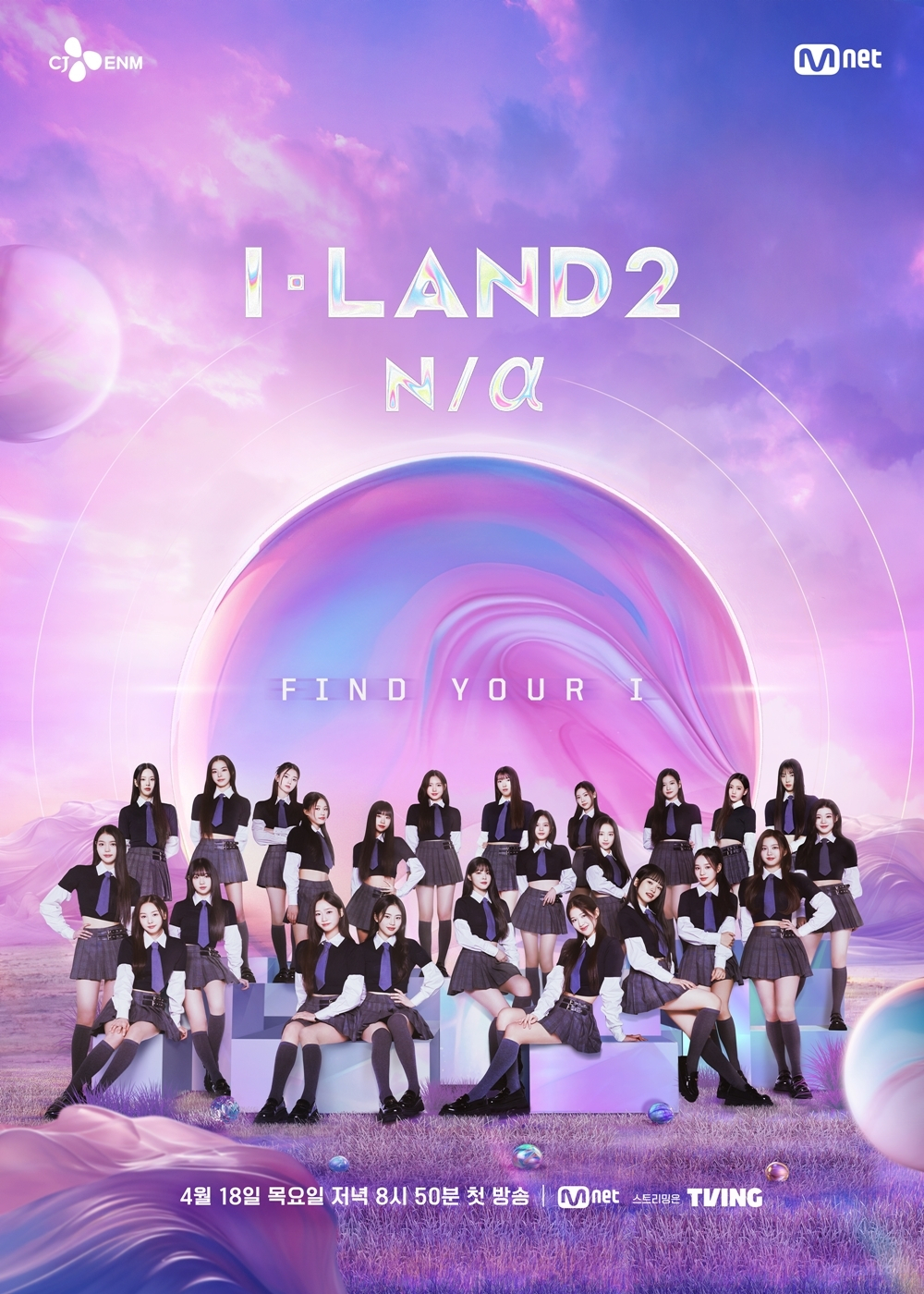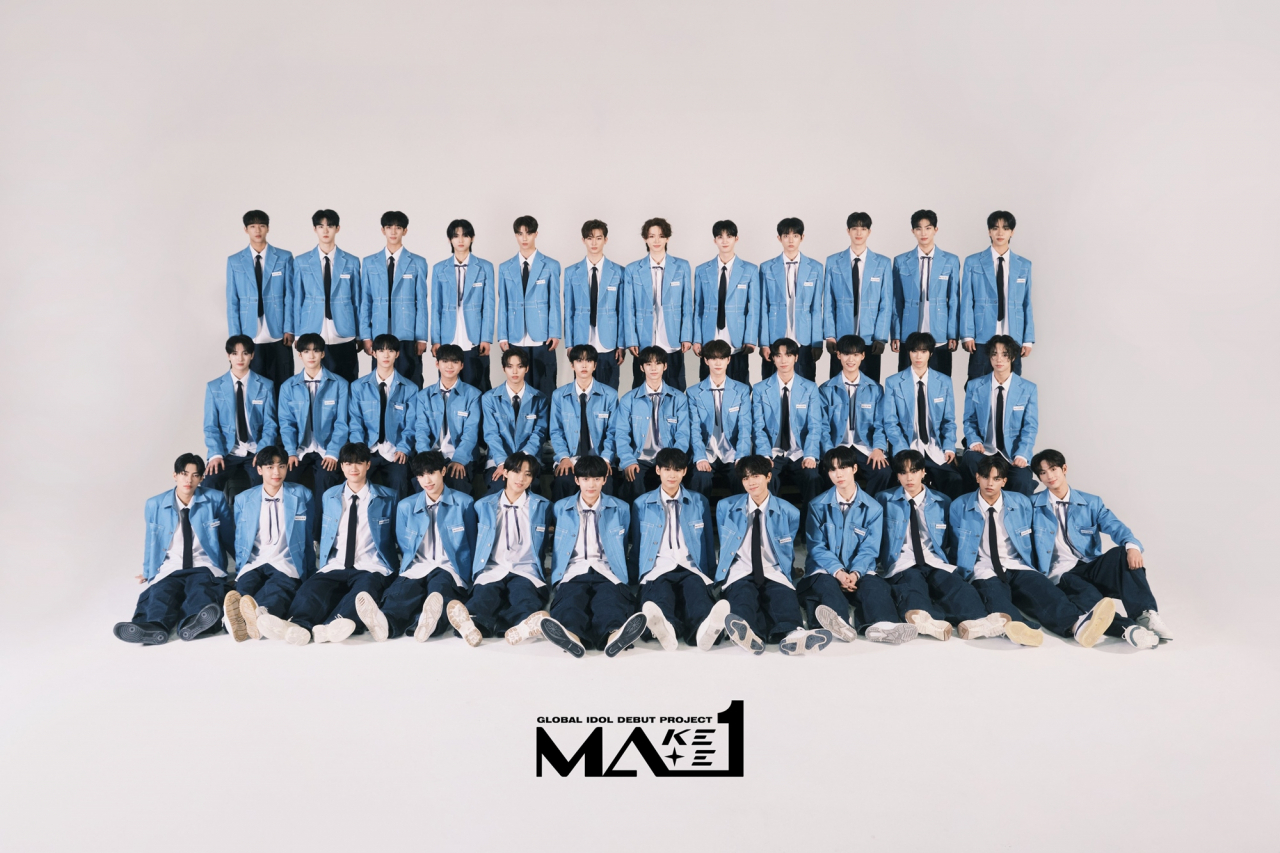K-pop reality audition shows transform, strive to appeal to fandom culture
Experts say such shows do not aim for high ratings
By Hong YooPublished : April 22, 2024 - 15:00

The fever for reality TV audition programs featuring K-pop idol singers continues unabated, with South Korean broadcasters launching more, similar programs but with new formats to keep viewers entertained.
Local music channel Mnet, which produced the most successful K-pop audition show franchise “Produce,” launched “I-Land2: N/a” earlier this month. It is a sequel to the 2020 reality audition show “I-Land.”
Next month, the national broadcaster KBS 2TV is set to premiere “Make Mate 1,” a reality competition program to debut a boy group targeting the global fandom.
“Universe League,” the second season of SBS’ global audition program “Universe Ticket,” is currently recruiting male participants to debut as a K-pop boy group.
However, such audition programs do not promise high viewership.
For instance, the highest rating for SBS’ “Universe Ticket,” which ended in January this year, was 1.1 percent according to Nielsen Korea.
Experts say it is not high viewership that broadcasters are aiming for. Instead, it is about investment to appeal to fandom culture.
“These programs encapsulate the process of the participants receiving K-pop training, competing with one another and debuting as idols in just a few episodes. This helps build a global fandom within a short time, which allows these broadcasters to carry out future business with these K-pop groups that debut through their audition programs,” said culture critic Jung Duk-hyun.
By airing such shows, broadcasters are guaranteed a certain ratio of revenue generated by the idol groups after they debut. They are also entitled to plan future group activities together with their agencies, such as concerts.
Though high ratings are not the main objective, broadcasters try new formats to target young viewers of diverse nationalities, breaking the stereotypical Korean survival show style.
For example, Mnet’s “I-Land2: N/a” focuses on spotlighting the potential and characteristics of its participants rather than focusing on the competition between the participants from 10 different countries including the US, Germany and Thailand.
“Showcasing disputes between participants during competition can make a headline. But for the program's success, the show needs to give its viewers the joy of discovering gems and seeing them turn into stars. This is why audition programs are turning more benign these days,” said culture critic Kim Sung-soo.

KBS 2TV’s “Make Mate 1” focuses on establishing a friend-like image for its 36 global participants that young viewers in their teens can easily relate to.
However, the downside of these groups debuting through audition programs comes in the longevity of their popularity.
K-pop groups such as UNB and Uni.T who debuted through KBS 2TV’s “The Unit” disbanded 11 months after their debut. They also failed to make a name for themselves while they were promoted.
Girl groups Class:y who debuted through MBC’s “My Teenage Girl,” and Kep1er through Mnet’s “Girls Planet 999” in 2022, are still struggling to gain recognition in the K-pop scene, amid the strong dominance of groups from the “big four” agencies: YG, SM, JYP and Hybe.
It is not rare to see winners of reality audition shows try out for the second time in another audition show.
K-pop singer Lee Chae-yeon, for instance, debuted as a member of IZ*ONE, a now-defunct project group established through Mnet's "Produce 48" (2018).
Five years later, she appeared again in another K-pop girl group audition program "Queendom Puzzle" by Mnet.
“Project groups are hard to sustain because the members of the group belong to different agencies. So when their contract as a project group ends and they return to their agencies, which are mostly small to mid-size labels, the artists find it hard to continue thriving,” said critic Jung.



















